
Interview and Photography by: Chandler Crump
Written and Produced by: Daniella Bernal
Stylist: Mya Gelber
Written and Produced by: Daniella Bernal
Stylist: Mya Gelber
So can you tell us a bit more about where you grew up and how you ended up living in New York City?
I'm from Redondo Beach, California, which is in the outskirts of L.A. I always knew I wanted to go to school on the East Coast. My mom was like, “Get out of here” and go do something and really pushed me to leave California. I ended up going to Bard College, which is 2 hours upstate. I loved it, [and] made all my best friends there. And then after college, I got a job. I knew [I was] going to go into [something in the realm of] international relations and politics.
I got a job at a law firm right out of college and was like, “Okay, I guess I'm moving to the city.”
So yeah, I've been there ever since; I moved to New York City in 2018. So it's been a while now.

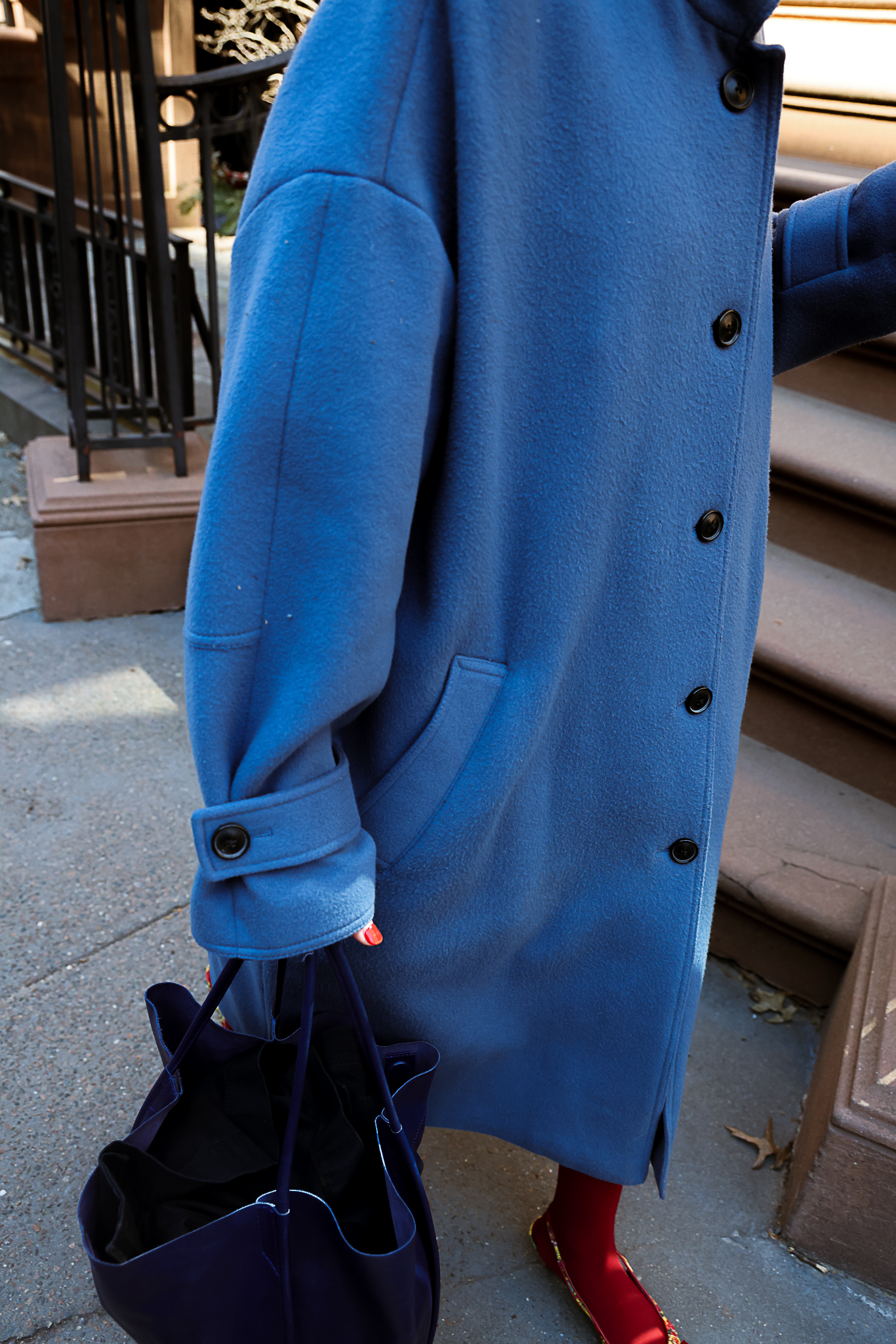
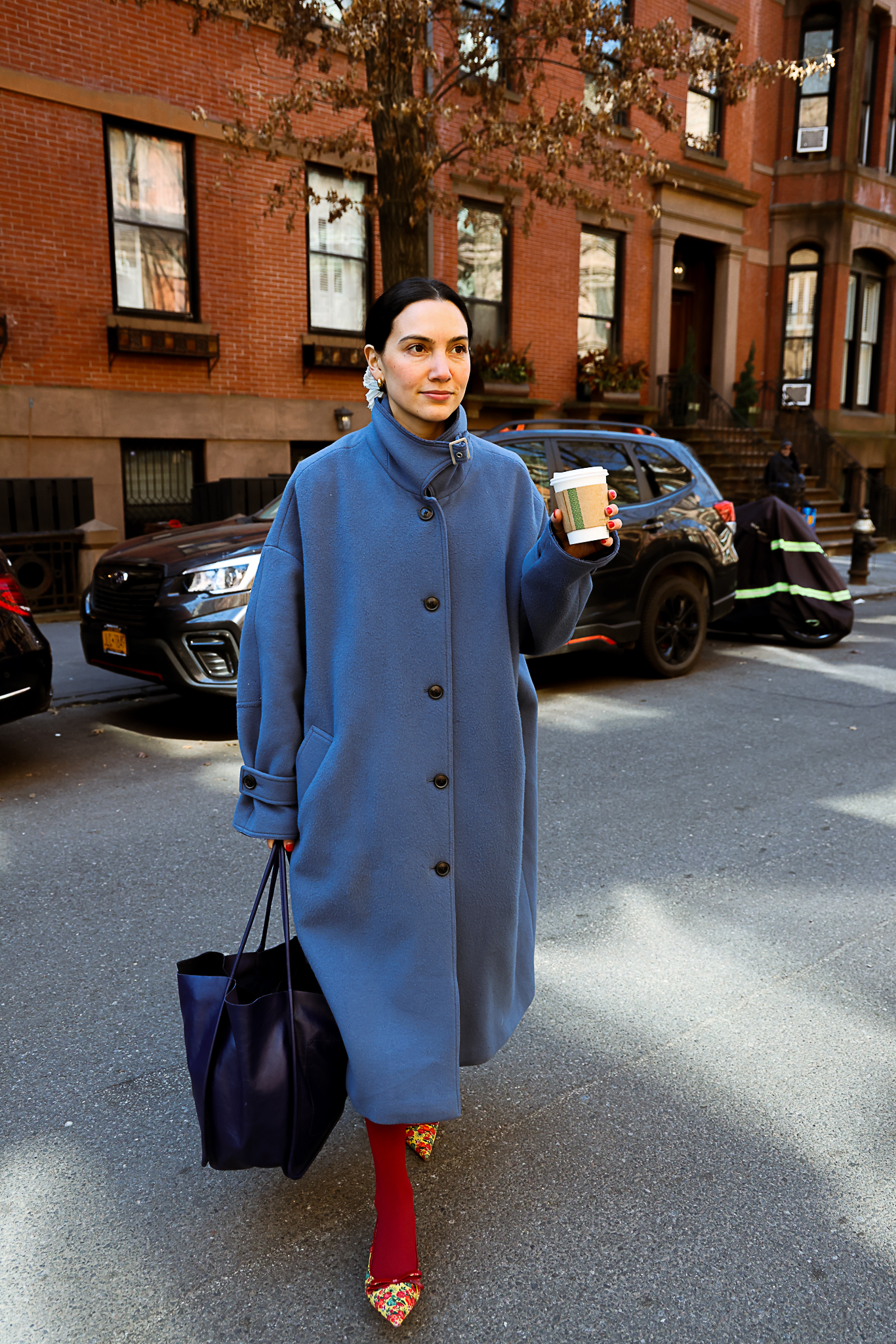
What's your dream job?
I feel like I always knew in some regard that if I was going to do law, it would be either writing legislation– working in that side of politics where you're like researching and writing laws –or it was going to be public interest, which is what I'm more leaning to. And I think that's probably where I'm going to be, in like five years: doing some sort of public interest lawyering, whether that be at a legal services organization or that be at a nonprofit or an impact litigation firm. You can give free legal services to people who can't afford it.
I think for me, being a lawyer is such an incredible privilege to be able to study law and then become a lawyer that to not use that to help people with their legal needs I think is a shame….the number of people unable to get legal services in a state that's so wealthy, and we've seen the benefits of having legal help. There's a new law that was passed, like the right to counsel, where if you are being evicted, you now have a right to an attorney.
The numbers without an attorney [is like a] 100% rate of you being evicted. With an attorney, it's around an 80% chance you will not be evicted. So the numbers are so clear that just having someone for a day to help you means you will not lose your home. I just think it's crazy.
That’s incredible of you. Was there a moment for you when you knew you wanted to pursue law, whether that be when you were looking for a job right after college or during your time in college or growing up?
Legally Blonde definitely influenced me. I'm sure it's the glamorization of lawyers on television that definitely influenced me. I think that we are all influenced by the media. And even if we don't like to admit that, I think for me, I think a moment [that] I was in undergrad and I was taking a lot of interest in economic development [i.e. why are some countries so poor and why are some countries so rich?].
And I was really interested and the answer to the question was obviously colonization and years and years of systematic colonization and imperialism. That's the answer. Like, how do we fix it then? And I took these courses with some of the most incredible professors who have been thinking about it and trying to answer these questions.
And I had a professor that was like, “This is how it is. There's like pretty much nothing to do. Like, there's no way to fix their system.” and I was so disheartened. You're supposed to be telling me that we can fix this, that these countries don't need to be so poor.*
I think for me, I realized that going into academia trying to just think about poverty and world poverty was not really going to do anything. And the only way that I was going to be able to make a difference was to be a lawyer. To me, that was the only way that I saw a way to be able to make a difference.
And I think that was probably the moment I knew I wanted to change the world [and] make a difference. I'm an Aquarius and I think I have a bleeding heart.
*The UN, like all these big institutions that are supposed to be helping do more harm than good in [my professor’s] eyes because they don't know what they're doing. And so I think to him it was like, “There's just there's no way.” So I think it was just like, [for me], how do I help people?
There is a privilege to academia– studying the theory of something without having it actually affect your day-to-day –and also not having either the bandwidth or the empathy or the mental stability to pursue a career in a field.
I mean, laws at the end of the day are the pillars of a lot of the oppression that we're still experiencing. Was there anything from your Mexican-American upbringing that influenced you?
Yeah, I think the first one being that Latina women make up 1% or 2% of lawyers in this country; we make up the smallest percentage of attorneys there.
I recently read [this] amazing paper called The Law School is a White Space by Bennet Capers in the Minnesota Law Review. It’s been quoted that the law field is the least diverse profession in the nation, more so than any other profession. And so I think to me it was like, I want to be a lawyer because I want people like little girls to look up to me and be like, “Look, she's Mexican [too] and I can be a lawyer.”
And I think that's important to me. We all know how important representation is. And the only person I had in my field of view was Sonia Sotomayor, who is amazing. But we have a Latina Supreme Court justice, but we've never had a man who's Hispanic on the Supreme Court. And I just think there's such a lack for many reasons, mainly that of institutional racism. I have no lawyers in my family, so I think that was important to me personally.
The last reason would be overall, my community has faced immigration and documentation concerns, so I’ve always been interested in working in humanitarian immigration. They see such faults in that system. And some of the work I've been doing for the past three years in humanitarian immigration definitely comes from that. It comes from giving back to my community in that way to aid them in helping them be in this country.


What does your current job history in law look like?
Right after college, I got a job working with 9/11 victims, helping them file their claims with the 9/11 Victim Compensation Fund. I was doing a lot of translation work because a lot of people who were working down after 9/11 were undocumented and were immigrants.
Definitely exploited.
Those people now have cancer and now there’s finally a claim because everyone was suing everyone. So the government was like, “We're just going to set up this fund.” So doing that for a while [was] really, really hard and emotionally distressing.
[At the same time] I was studying for the LSAT. I took it like three times and the thing about applying to law school is I didn't know anyone who had become a lawyer. I had no idea how this process [worked] and what I needed to do.
And so I think it took me a long time to apply and get into law school because I just didn't know what I needed to do. And so it took me like two years to, like, study for the [LSAT]. I had to first save up enough money to pay for classes; you can't just take the test, you have to take a class and study because there's like all these tricks and rules.
I'm like, If you want more people of color to be in law school, you need to [make the LSAT more accessible]. It completely privileges Westerners and Whiteness. Even the vocabulary [the test uses].
So it took me a really long time to study for it…the cost of this study course was $2,000. Living in New York, I'm trying to pay rent…It's crazy. The exam itself is $200-
It’s colonization nepo-babies, where everyone comes from intergenerational wealth, but it’s just colonization nepotism which is why only non-POC can truly afford to pursue law.
I took the test finally and I ended up switching jobs to work pro-bono for a big corporate firm: we just worked on things like humanitarian immigration, domestic violence, and impact litigation. A lot of like working with incarcerated individuals.
So this was 2021.
And was this online or did you go in person?
I [went] in person, yeah. And this was a higher up paralegal position and when I got this job, the same week I was told that I got into Brooklyn Law school and I was like, “Amazing!”
My plan was always to work and go to school. I told them “I got into law school, will you guys still take me?” And they were like “We’ll take you, we love your resume, you have so much client experience and we’ll make it work.”
So in my first year of law school, I was 9-5 [at my job], and then I would go to school from 6-10 [at night]-
I'd literally fall asleep in class.
I was falling asleep in class and it was really hard, but it was also my career. My class was really small and we all sort of like trauma bonded over this experience. And I think it was good because we all had worked before. We all had lives and were on a mission working full time and no fucking around.
But [in August 2023], I decided that when I started making enough on social media I was going to quit my job and go to school full time because I only have two years left in law school. My grades are good, they could be better, but I just [didn’t] have enough time to do my homework.
And so I decided to quit my job. I was really sad to leave because the work they were doing was really great. I met people from every single legal services organization, every single corporate firm, and got a really got a good grasp of the legal landscape that I didn't have before.


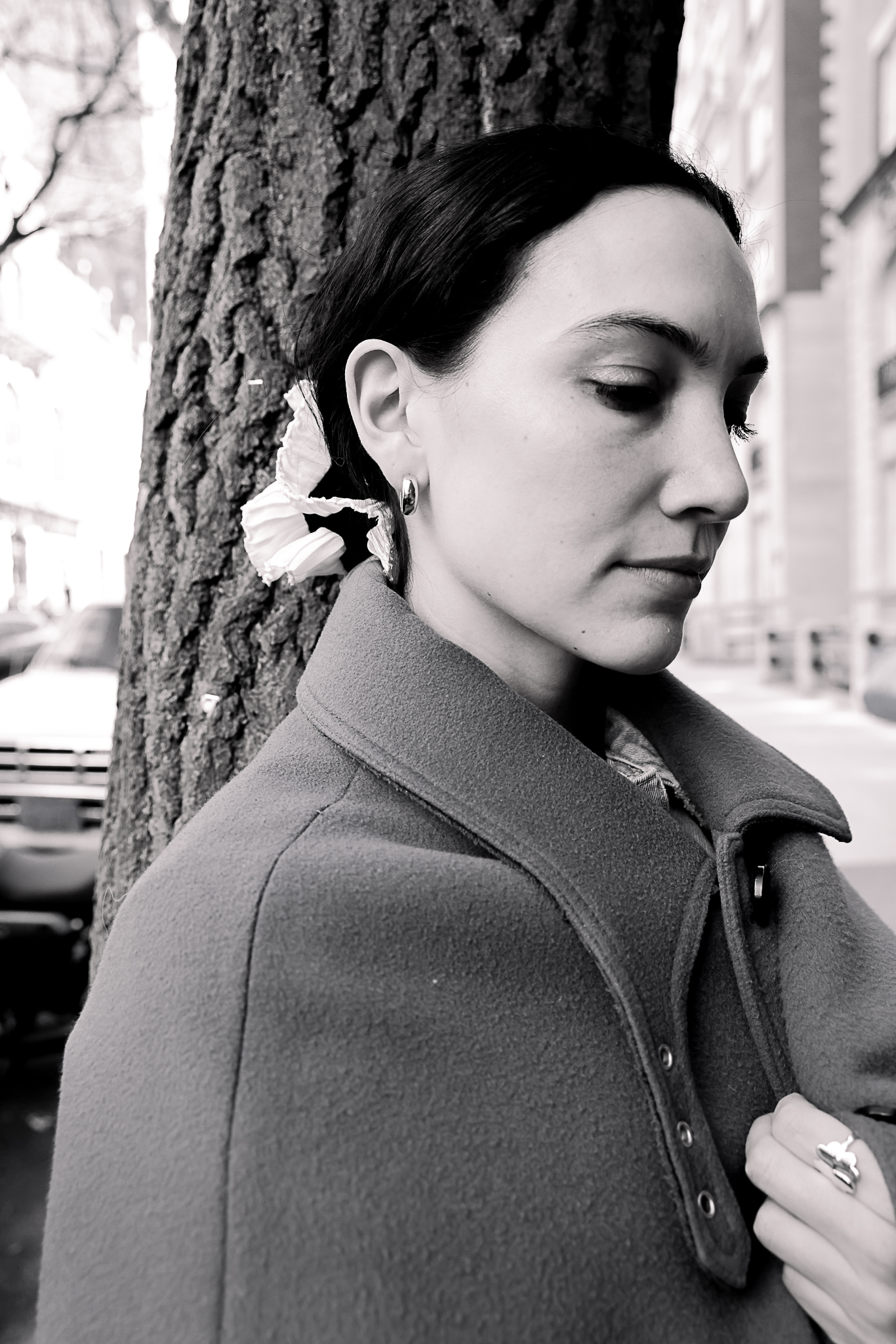

We personally found you through Instagram reels, which are crafted so elegantly. When did you begin to post those reels publicly on Instagram and curate your aesthetic where people were starting to watch, or did you always kind of have an Instagram presence?
So I started posting TikToks in 2021 and 2022. And so I had a TikTok presence and was active on there because I was like, “There's no way I'm posting on Instagram that is so scary.”
And so I [finally] posted [on Instagram], really, I think in December, like two months ago [from February 2024]. And it went viral.
Wow, I can’t believe that you going viral was only at the end of 2023!
And I was like, this is crazy. I guess people are really resonating. My first three [outfit] videos did incredibly well and I gained, I think like 10,000 followers, like overnight.
That's crazy.
It was crazy. And then by like two months later, I had gone from like 3000 followers, to like 50,000.
Wow.
I feel like the feedback I was getting was really positive. People were telling me “yYour style completely reinvigorated me”, “I'm so excited to get dressed every day!”, “Your style really, speaks to me”.
So in terms of monetization, in our own civilian knowledge, compared to YouTube and TikTok, Instagram has collaborations/paid partnerships, but when was the moment you learned that you could monetize enough for your education?
I think Instagram's a different ballgame than TikTok because most of the brands are still only operating their marketing on TikTok. I mean, they're on Instagram and YouTube and Twitter, more traditional forms of media…and so even though I was making just enough on TikTok to pay off some student loans, I still needed my job. It was extra cash. On Instagram, it’s a lot more people reaching out to do brand deals.
It definitely feels more accessible to look at a still image and see a product versus watching a video. The Pinterest business plan is hand-in-hand with Instagram where what draws people in are the images.
It’s fun, I like making videos. I like having to think about “How would I market this?” - I haven’t done many brand deals on Instagram, but when I did for Tik Tok it was fun. It's not that serious. And I think, yeah, for me it's always like paying bills and then when I do have left over from brand deals, it'll go to paying off my loans. And that;s such a blessing from social media.
Be your own sugar daddy.
Exactly. Exactly. So I think, yeah, it's very fruitful in that way. So I hope I get to keep doing it.
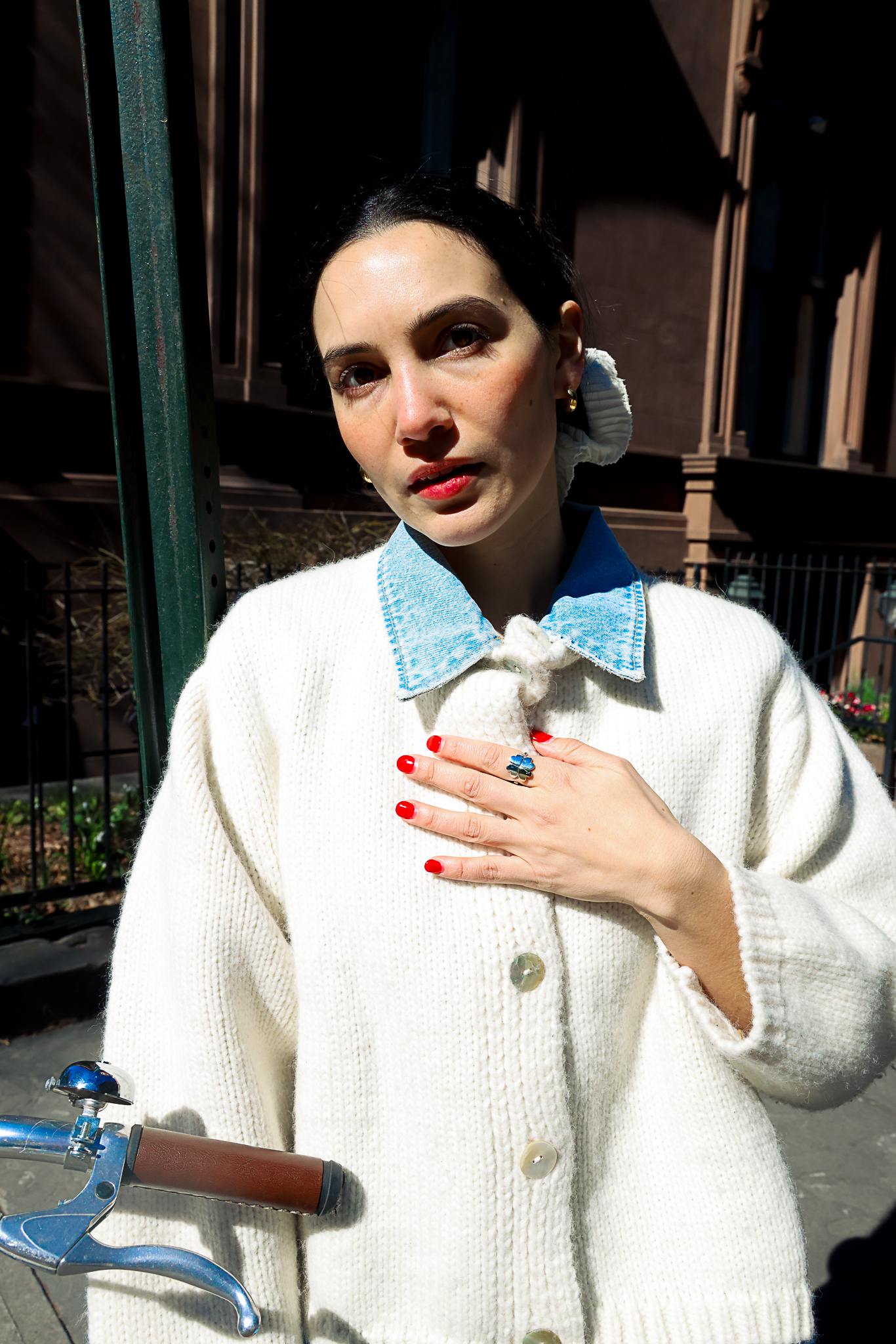

In an industry that actively tries to gate-keep women, specifically women of color, out of pursuing a law that is so flawed, what keeps you going?
I've been getting asked a lot on Instagram and from people in my life ever since I started posting on Instagram if I’m going to “ditch this whole law for fashion now”. And like, people keep asking me this and it just seems that to want to pursue law and to care about fashion and style is just so incompatible in people's brains that, by doing it, I'm shattering a mold.
If a man was showing off his outfits and pursuing law, they'd be like, “You're the perfect man”, “You’re so well rounded”, “You care about what you wear and you're so smart”. When it’s a woman, people ask “You have to take one or the other more seriously.”
That's the other thing too. If you are pursuing law as a woman, to care about these other things [such as] fashion and social media, that means you're not [serious]; “you're inherently not serious if you care about fashion and you should not care about these trivial things.”
So fashion will definitely affect my legitmacy, and that’s something I will have to reckon with at one point. And I'm going to continue to do both in whatever way I want, whatever shape and form, because first and foremost, the law space was not built for me. It's not built for Mexican women. So I'm creating my own path.

I will never be able to fit into this mold. I care about fashion. I care about law. I care about all these things and I don't care.
Because it's like, what is the definition of serious? At the same time, they're like “You're not fitting the mold”, but then it's like, “Well, the mold shouldn't still exist.” So you even existing is creating a whole other separate part of the industry that hopefully doesn't take a hundred years to solidify into the norm.
I think [the definition of professionalism], whether that's speech or your vocabulary or how you dress, implicitly privileges white and Western attributes. And I think I'm not going to exist in that way, and I never will. I'm going to just continue to try and do both and care about both.
And yeah, that affects my legitimacy. It will.
It's crazy because I feel like people sometimes catch themselves in a binary where it's like, if you're serious, you have to be dressingmasculine, you have to be lowering your voice or else you won't be taken seriously. And people who ask that question to you are participating in the gatekeeping of women pursuing law by suggesting that you can't be interested in multiple things.
A lot of people associate competence with a woman’s interests and dismiss all of her education. And the question also suggests that competence does not go hand-in-hand with primarily feminine-coded things. And it's sexist and racist.
And I'm like, don't ask me that. Why can't I [just] exist?
It's an ignorant question for people to assume that you have to choose one or the other. They’re contributing to the patriarchy.
The field of law doesn’t exist for me, it’s antithetical to who I am. And now I’m refusing to try to fit in the mold and dress how I like without putting aside my personal style.
So what keeps me going includes getting a coffee at La Colombe, water-coloring every morning instead of journaling (I can’t journal), seeing my friends, trying to bake more cakes, and shopping.
I love getting dressed every day. It's the best part of my day and I love going shopping. I love window shopping. I love looking at the stuff and touching clothes and seeing what people are making. I love finding small designers. And I love embroidering.

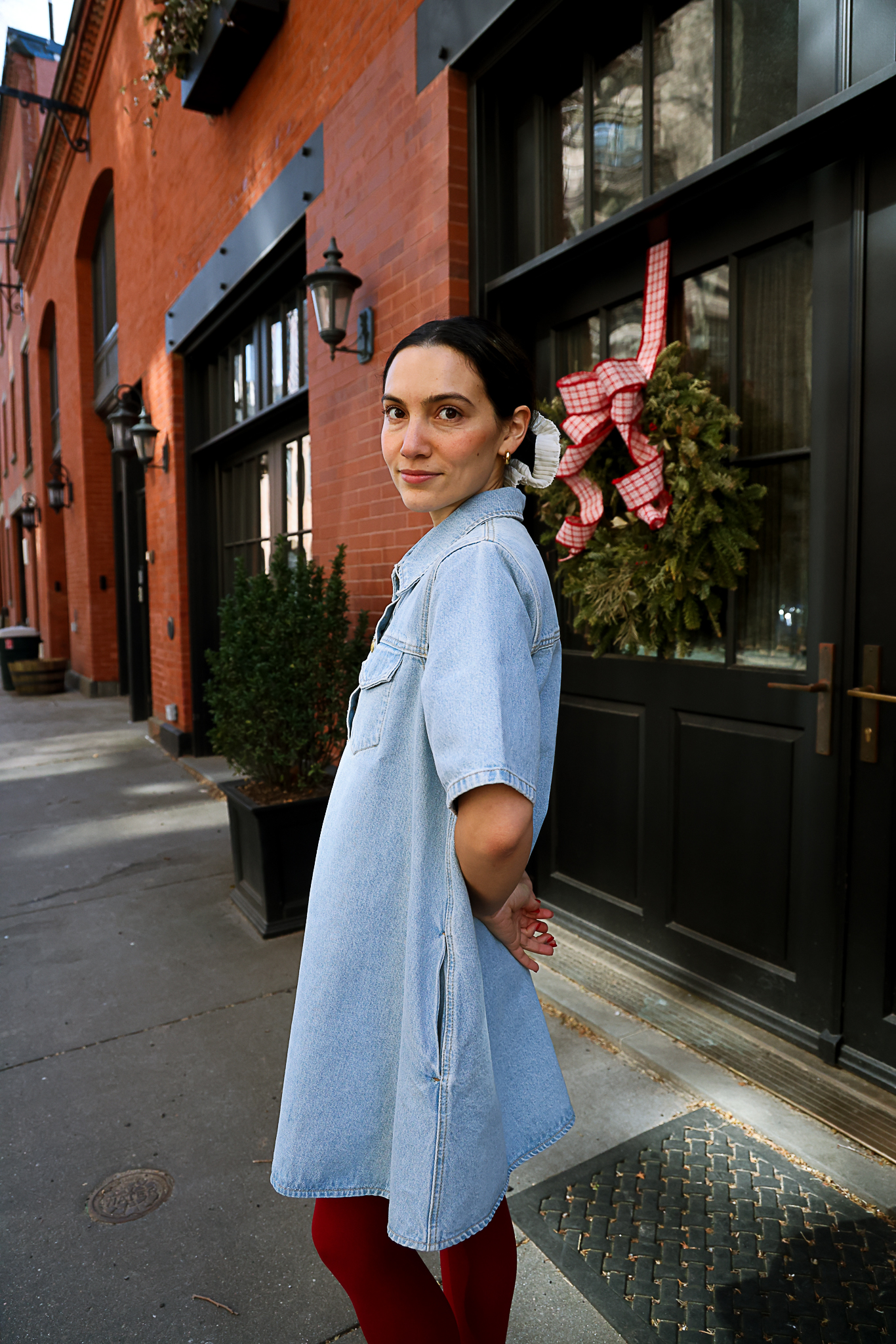
Favorite outfit at the moment?
My uniqlo Indigo jeans. And then probably a chunky sock, a colorful, chunky sock. And then my plastic clogs from Salter House. Then, a white t-shirt and either a cardigan or one of my million chunky sweaters, and some form of coat, and then my glasses and my L.L. Bean tote bag.
Fin

